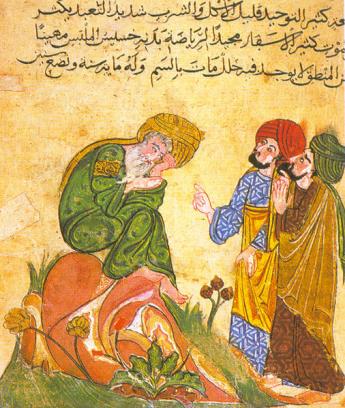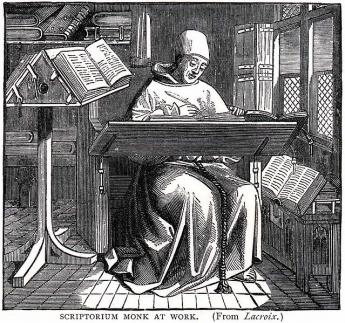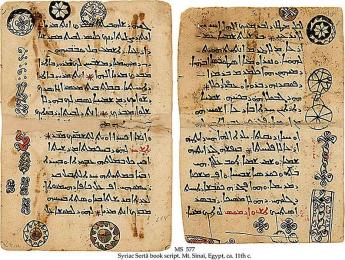Allah, God, and Zeus Walked Into a ...

By Linda Hedrick
Hunayn ibn Ishaq, Al-Kindi, Al-Razi, Al-Farabi, Ibn Sina, Al-Ghazali, Muhammud ibn 'Abdun, 'Abd'l-Rahman ibn Ismail, Ibn Bajjah, Ibn Rushd, these are all names that most of the West are unfamiliar with, but are some of the ones to which we owe a great deal. They were responsible for safeguarding and spreading the knowledge that came from the Greeks, but which had been lost, due to lack of interest by the West.
The Romans were an interesting culture. Having co-opted their pantheon of deities from ancient Greece, and much of their literary culture as well, they went on to ignore it. They were engineers of remarkable skill, great planners, and were able to govern a vast array of cultures peaceably during the Pax Romana, which lasted a little over 200 years - as we recognize today, not an easy feat.
But knowledge of Greek texts declined, and many were not translated. The Byzantines were focused on conserving the early Christian writings. After the death of Boethius in 525 CE, one of the last scholars who read both Latin and Greek, there seem to be a disdain for Greek texts, and the manuscripts were scraped and reused. Eventually, they could only be found in monasteries.
When the Roman Empire fell, and the Middle Ages began, many of these texts of classical antiquity were thought to be lost. But many of them had been translated from Greek to Syriac during the 6th and 7th centuries by monks and Greek exiles living to the east. These were, in turn, translated and kept by Islamic universities and centers of learning. The Muslims not only preserved those ancient Greek texts, but had written commentaries on them. Though it was unplanned, their reintroduction of these texts ended up saving the Greek classics of philosophy and science, which became a cornerstone of the Renaissance.
But warming up to the Greek classics was a slow process. They were adverse to classical learning, so translators could not get support from religious factions. Those under Abassid rule were more familiar with Greek ideas so were more open to translations. They also stressed that Islam emphasized that gathering knowledge was important.
Nestorian and Jacobite Christians had kept some ideas alive, and had translations of Greek texts made into Syriac. These Syriac texts were then translated into Arabic. Islam had been born in a Hellenistic world, and the remaining Hellenistic schools were the forerunners of translations. When the Abassid capital was moved to Baghdad, it became a center for Greek translation work. There is some argument among scholars that Greek literature was ignored, but some argue that eventually all was translated.
During the Middle Ages there were several points of contact between the Islamic world and Europe. An important one was in Toledo, Spain, then a major cultural center. After the Reconquista, a long period of wars after which Christian forces took over the Iberian peninsula, the Muslim libraries remained intact, and a translation center was established where books in Arabic would be translated to Hebrew or Spanish, then from Spanish to Latin.
There was another point of contact in Sicily, which had been conquered by Muslims, then reconquered by the Normans in the 11th century, but it retained its Muslim influence. In the 1100s, under the rule of Roger II, it became a major center of culture, attracting scholars, scientists, artists, and artisans from all over. Latin Normans, Byzantine Greeks, Muslims, and Jews all formed a society that worked together on shared interests.
And then there were the Crusades, those religiously sanctioned military campaigns, which focused on interactions between the Levant and Europe, and culture was exchanged in between death and destruction. Although the wars were supposed to be waged against the Muslims, some campaigns were aimed toward Greek Orthodox Christians, pagan Slavs, pagan Balts, and Mongols - whoever was getting in the way of the Church.
The Latin West, however, was still suspicious of Greek pagans, and it wasn't until the 12th century, when universities started to develop, that these "new" ideas were examined. A few western scholars became interested, and scholars from Spain and Sicily were welcomed in European courts.
In this way, from the accumulated knowledge of the Muslim world, the once lost knowledge of the classics was transmitted to Europe once again.
The article was published on Cerebral Boinkfest and is present here by permission of Linda Hedrick.


